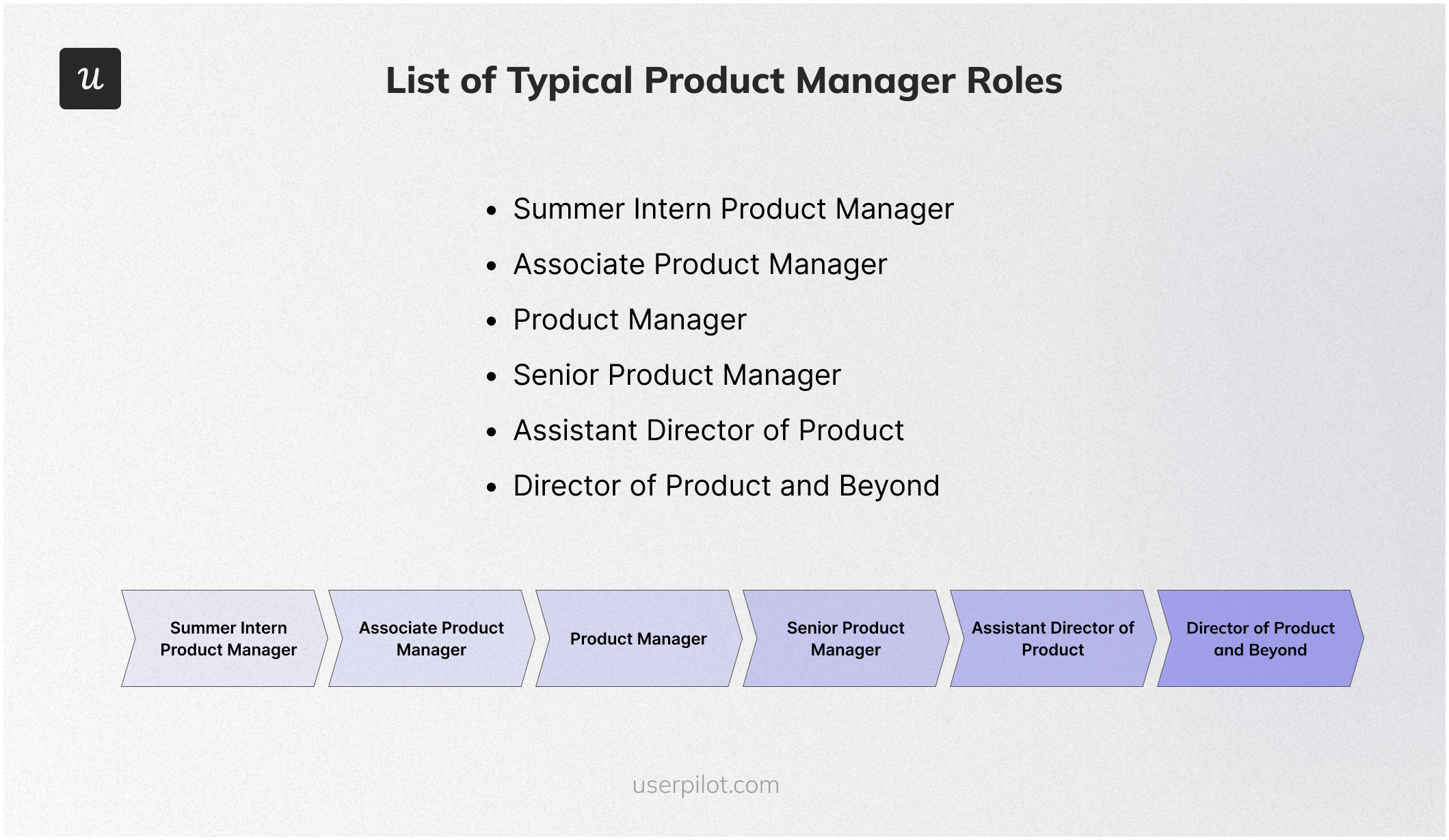
What is a Product Manager? Responsibilities, Salaries, and More
Get The Insights!
The fastest way to learn about Product Growth, Management & Trends.
What is a product manager?
A product manager (PM) is a professional who identifies customer needs and defines what a successful product looks like to the broader business objectives. The individual manages the product’s lifecycle from conception through launch and beyond – making strategic decisions to enhance its value and performance.
What does a product manager do?
They take charge of the product from conception to its launch, overseeing its development and improvement through customer experience insights.
They are tasked to conduct market and customer research, ideate products/features to release, oversee their development, and coordinate with other departments to ensure customers launch the product effectively and adopt it.
Product manager’s main responsibilities
Product managers are pivotal in guiding the development and success of software products. Below are the primary responsibilities:
- Product strategy and vision: Define and communicate a clear product vision and strategy aligned with business objectives.
- Market research: Conduct market analysis to identify customer needs, competitive landscape, and industry trends.
- Roadmap development: Create and maintain a data product roadmap prioritizing features and improvements.
- User feedback: Leverage user engagement tools to gather and analyze customer feedback to inform product decisions.
- Cross-functional collaboration: Work with engineering, design, marketing, and sales teams to ensure cohesive product development and launch.
- Feature specification: Write detailed specifications for new feature announcements and enhancements.
- Agile methodology: Implement agile planning best practices to manage the product development lifecycle.
- Data analytics: Monitor product performance metrics to drive continuous improvement.
Product manager salary
On estimation, a product manager earns a total pay of $196,523 per year, according to Glassdoor. Their average salary is $123,118 per year, with an estimated additional pay of $73,405 per year from channels like cash bonuses, commissions, tips, and profit sharing.
Aside from that, here’s how experience can impact a product manager’s salary:
- 5- 7 years (Product Manager): $120K – $204K per year
- 5 – 7 years (Assistant Director of Product): $136K – $241K per year
- 5 – 7 years (Associate Director of Product): $170K – $274K per year
- 5 – 7 years (Senior Lead Product Manager): $173K – $271K per year
- 5 – 7 years (Lead Product Manager): $182K – $279K per year
- 8+ years (Principal Product Manager): $205K – $316K per year
- 8+ years (Director of Product): $214K – $335K per year
- 8+ years of experience (Senior Director of Product and above): $240K – $382K per year
Industries where the demand for data product management professionals is highest, tend to be the same industries that pay the most on average. Here are salaries from top-paying industries:
- Financial services: $156,728 per year
- Information technology: $149,334 per year
- Agriculture: $145,845 per year
- Energy, mining, and utilities: $145,662 per year
Where you live can have a big impact on how much you make as a product manager. Here are the midpoint salaries for product managers in the following large US cities:
- New York: $126,751 per year
- Boston: $158,728 per year
- Washington, DC: $107,903 per year
- Seattle: $167,677 per year
Product manager career path
Here is a typical career path of a product manager:
- Summer intern product manager: A starting point in the product management career, typically for students.
- Associate product manager: Entry-level position for recent graduates or those new to product management. Progression is by working closely with experienced product managers to learn the ropes.
- Product manager: This role is responsible for managing a specific product or feature. One progresses by developing and implementing product strategies, collaborating with cross-functional teams, and driving product development from concept to launch.
- Senior product manager: This person manages a team of product managers. They progress by leading, mentoring, and supporting a team of product managers.
- Assistant director of product: This individual supports the Director of Product in strategic initiatives and execution. They assist in setting the product vision and strategy, managing larger product initiatives, and driving cross-functional collaboration.
- Director of product and beyond: This senior position involves overseeing significant product areas or teams. They focus on high-level strategy, major product decisions, and team leadership.
Best practices for being a great product manager
How does one become a great product manager? It takes dedication, focus, skill, and understanding to pull it off effectively.
Here are some of the best practices that top product managers recommend:
- Manage tools and resources effectively: Effective management ensures your team is equipped with the right tools and resources to meet project goals efficiently
- Study and understand the product properly to answer questions: You should be able to answer questions from various stakeholders, including team members, clients, and upper management related to the product you’re building.
- Empower your team: A great product manager empowers their team by delegating decision-making responsibilities.
- Influence – not force: Effective leadership is about influence, not coercion. Instead of imposing your ideas or decisions, strive to influence others through active listening, empathy, and collaboration.
- Stick to tough decisions when you make them: While it’s natural to seek consensus and minimize conflict, sometimes you must make unpopular choices for the greater good of the project or company.
Product manager FAQs
- What exactly does a product manager do? A product manager is responsible for guiding the development and lifecycle of a product from concept to launch.
- How much does a product manager make? On average, in the United States, a product manager can expect to earn between $150,000 and $263,000 annually.
- What do you need to become a product manager? To become a product manager, a combination of education, experience, and relevant skills is typically required.
- Do you need an MBA to be a product manager? While an MBA can be advantageous and provide valuable skills in business strategy, leadership, and financial analysis, it is not a strict requirement to become a product manager.
- What industries hire product managers the most? Product managers are in high demand across numerous industries, with technology being the most prominent. Tech companies, particularly those developing software, hardware, and digital services, frequently hire product managers.
Conclusion
We hope this guide has provided you with valuable insights into the roles, responsibilities, and rewards associated with this role.
Looking into tools for product managers? Userpilot is an all-in-one product platform with engagement features and powerful analytics capabilities. Book a demo to see it in action!







